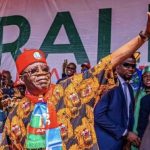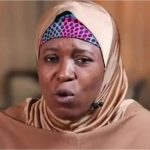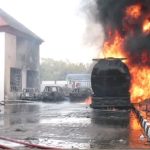As I fastened my seatbelt, preparing to fly out, my mind wrestled with one relentless thought — the security crisis crippling North-Western Nigeria.
The route I was escaping from — Kano to Sokoto or Kebbi, passing through Tsafe, Gusau, Bungudu, Maru, Talata Mafara, Lamabar Bakura, to Lambar Tureta — is defined by fear and uncertainty. The shattered road is lined with security operatives who often forget their roles as uniformed men; instead, they use their weapons as tools of intimidation, extorting unofficial levies from commuters.
Sitting by the window, I watched as landmarks, buildings, water bodies, and road networks gradually disappeared. As the pilot ascended further, my view was left with only sparse clouds. Nothing seemed frightening anymore, except perhaps the thought of flying in a second-hand plane imported after years of use in the developed world. This was unlike my last encounter — a deeply traumatic experience that left a bleeding wound in my heart.
Within a span of just ten days, I encountered bandits on five different occasions. I narrowly escaped their attacks. At one point, all I could do was recite my last prayers — *Lā ilāha illā-llāh Muhammadun rasūlu-llāh* — as they were less than five meters from my bus, fully armed. Alhamdulillah! I am still alive to tell this story.
I saw them emerging from the bush just moments after our bus passed. I watched them operate from a distance of less than 200 meters. I drove past shoes and people’s belongings scattered by the roadside — their owners being led into the bush. Some returned after torture; others were mercilessly killed, leaving their families in lifelong grief.
It is unfortunate that a significant number of people still travel on this road using cars and buses — not because the situation has improved or the bandits are gone, but because they have no other option. It is like in the wild, where the prey and the predator drink from the same water source. The prey has no choice but to go to that stream; they either quench their thirst, end up in the predator’s stomach, or, on a lighter note, return home with a missing limb. This is the tragic reality for travelers on this axis.
As a young Nigerian who saw no enabling environment for business, lacked the connections for lucrative government contracts or the so-called “white-collar jobs,” and had no access to flexible seed funds, I started my journey with nothing after my BSc about eleven years ago. God has been kind, and things have begun to take the right shape. Sadly, here comes the security challenge in the region where I operate.
The security issue has been left unattended, plagued by a lack of sincerity and an “I don’t care” attitude. Perhaps this is because those in charge are rarely the victims of this security decay; in addition, they benefit from the unaccounted security votes.
I have been asking myself a number of questions for a long time now: Where are the technological gadgets for tracking and tracing communication lines? These bandits are using social media, making calls, and doing all sorts of things online. Where is the security intelligence? I believe their assignment should go beyond merely tracking stolen phones or identifying innocent citizens who hold political officeholders accountable. Don’t tell me that the scruffy-looking people in the bush are using sophisticated, untraceable devices — or that these “bushmen” are smarter and more intelligent than our skilled security personnel in suits and uniforms.
We have heard the voices of the opposition. Now, the voices we need are those of the Northern elites, influential figures, and Northern leaders within the current administration. They must engage the government beyond the regular condemnations that only make headlines.
The truth is, condemnation, beautifully crafted grammar, or political statements cannot bring back lost lives, recover seized resources, or stop the exodus of investors. What we demand now is sincere commitment and a strategic, sustainable solution that will finally bring this reign of terror to an end.
Mohammed Chiroma Hassan is a Grassroots Development Advocate






